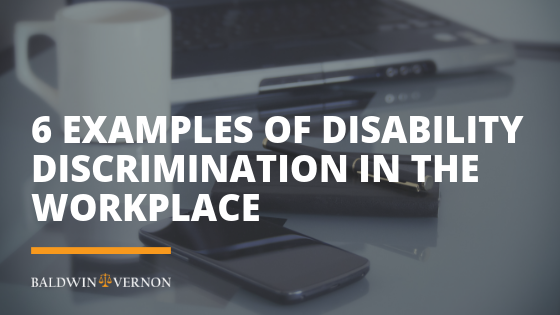6 examples of disability discrimination in the workplace
6 examples of disability discrimination in the workplace The Americans with Disabilities Act protects you from being discriminated against due to a past, current, or perceived disability. Disability discrimination in the workplace is against the law but unfortunately, that doesn’t deter all violations. Here are 6 examples of disability discrimination and its presence in a work environment. Firing a candidate because of a disability Employers are not permitted to make any job-related decision based on a candidate’s or employee’s disability. This includes hiring decisions, promotions, terminations, and other related aspects of employment. If an employer doesn’t hire a qualified applicant due to a disability, decides to reassign the employee to a lesser role, or fire him or her because of [...]











